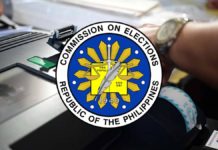BY GLENDA SOLOGASTOA
ILOILO City – Today marks the eighth anniversary of the country’s worst oil spill, but victims have yet to be fully compensated for their sufferings and other untold tragedies.
There are 900 claimants still fighting for reparation reaching over P300 million. They are mostly from the coastal municipality of Nueva Valencia, said Mayor Emmanuel Galila.
On August 11, 2006, oil tanker “M/T Solar 1”, carrying more than two million liters of bunker fuel, sank during a storm approximately 20.5 kilometers off the coast of Nueva Valencia in the southern portion of the island province.
Some 500,000 liters of oil spilled into the strait.
The oil spill displaced mostly fishermen and coastal residents whose livelihoods were dependent on the bounties of the sea.
Fishermen would return from the sea with empty nets. Fish vendors had nothing to sell. Boat makers stopped building boats. Their families were at the mercy of humanitarian organizations and local government units from afar donating food and water, and offering alternative livelihood.
A villager from Barangay La Paz, Nueva Valencia died after he was believed to have inhaled fumes of the oil sludge and contract a cardio-respiratory disease.
Two sailors from the ship were also reported missing.
The 900 claimants are apart from 5,000 affected residents who accepted the 12 weeks or three months compensation offered by the International Oil Pollution Compensation Fund (IOPCF) ranging from P5,000 to P20,000 each, said Galila.
“These 900 claimants filed a case in court. They were not contented of the 12 weeks compensation. For them, it should be 22 months or nearly two years,” said Galila.
A program will be held today at the Nueva Valencia covered gym.
The local government has invited guests from the Bureau of Fisheries and Aquatic Resources, Department of Environment and Natural Resources and the Sapalo-Velez Law Office that is handling the claimants’ case.
Galila recently wrote President Benigno Aquino III seeking help to hasten his constituents’ compensation claim.
In 2010, DENR Region 6 declared the Guimaras Strait completely free of spilled bunker fuel.
Galila said the lives of affected Guimarasnons have returned to “normal” but fishermen have noticed that their catch had dwindled.
Galila said this may be due to the damaged marine life that still has to completely recover.
The oil spill adversely affected marine sanctuaries and mangrove reserves in three out of five municipalities in Guimaras and reached the shores of Iloilo and Negros Occidental.
The spill damaged Taklong Island National Marine Reserve, a marine sanctuary for feeding and breeding ground for fish and other species.
The oil slick also posed a threat to the blue crab industry in the municipality of San Enrique and EB Magalona in Negros Occidental.
On August 6, 2009, pending negotiations with IOPCF and to avoid their claims from being time-barred after three years based on IOPCF guidelines, the Guimaras claimants, suing as indigents, filed two civil cases (for pollution damage and for reimbursement for cleanup and relief activities) with the Regional Trial Court in Guimaras against “M/T Solar 1” operator Sunshine Maritime and Development Corp., IOPCF and Petron Corp.
The bunker fuel being ferried by “M/T Solar 1” at the time of the oil spill was Petron’s. The tanker was on its way to Zamboanga City from Petron’s Bataan oil refinery when it sank.
Criminal cases were also filed for violation of the Maritime Pollution Decree (Presidential Decree No. 979) and Clean Water Act (Republic Act 9275), but with pending issues and without prejudice to the filing of additional cases for criminal negligence resulting to death of least one resident.
COMPENSATION
The IOPCF is part of an international regime of liability and compensation for oil pollution damage caused by oil spills from tankers.
Under the regime, the owner of a tanker is liable to pay compensation up to a certain limit for oil pollution damage following an escape of persistent oil from the ship.
The types of damage covered by the IOPCF are property damage, consequential damage, pure economic loss, and environmental damage.
When are claims admissible for compensation? IOPCF guidelines list the following general criteria for all claims:
- Any expense, loss or damage must actually have been incurred.
- Any expense must relate to measures that are considered reasonable and justifiable.
- Any expense, loss or damage is compensated only if and to the extent that it can be considered as caused by contamination resulting from the spill.
- There must be a reasonably close link of causation between the expense, loss or damage covered by the claim and the contamination caused by the spill.
A claimant is entitled to compensation only if he has suffered a quantifiable economic loss.
He also has to prove the amount of his expense, loss or damage by producing appropriate documents or other evidence./PN






